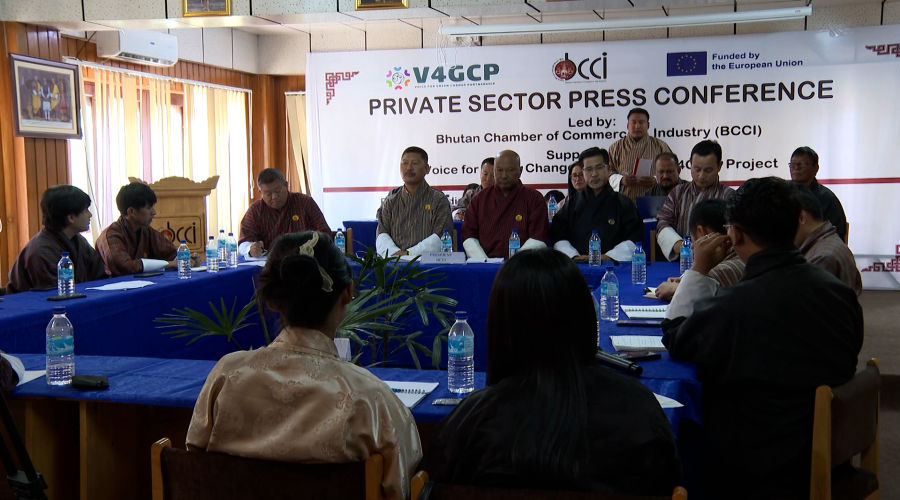 The private sector is placing renewed hope in the government’s recent economic reforms, particularly the introduction of seven new monetary measures and efforts to ease access to loans under the Economic Stimulus Programme (ESP). These two major developments, along with discussions on employment reforms for the private sector, were the main focus of the third Private Sector Press Conference held yesterday in Thimphu.
The private sector is placing renewed hope in the government’s recent economic reforms, particularly the introduction of seven new monetary measures and efforts to ease access to loans under the Economic Stimulus Programme (ESP). These two major developments, along with discussions on employment reforms for the private sector, were the main focus of the third Private Sector Press Conference held yesterday in Thimphu.
According to the Bhutan Chamber of Commerce and Industry (BCCI), the new monetary measures are expected to be more effective than the previous ones, which helped only two to three per cent of the private businesses recover from financial distress.
With the new measures, about 40 per cent of businesses are expected to recover within the next two years.
“It has got a bigger area for business to get out of NPL, and at the same time, you get deferment. Well, it’s not a deferment term, it’s restructuring of your loan, capitalisation of interest and at the same time, you can ask for term extension,” said Tandin Wangchuk, President, BCCI.
Despite the optimism, many entrepreneurs are still struggling to access ESP funding. A business owner who attended the press conference said that complex procedures make the application process burdensome.
“If the government could make the procedures simpler, like availing normal loans from the banks, then those businessmen who are not well educated can benefit,” said Tashi Gyeltshen, a Business Owner.
In response, the BCCI has recommended reinstating the Group Grant Lending Scheme. The scheme is a previously used method where businesses applied for loans as a group to make funding accessible, particularly for those in rural areas.
The scheme was discontinued due to issues with Non-Performing Loans.
The conference also highlighted on the Employment Responsibility System (ERS), where BCCI and the Ministry of Industry, Commerce and Employment will work on amending the Labour Policy Act. The goal is to ensure better post-employment benefits for private sector employees.
“The objective of this committee is for the employment and at the same time for the private sector. Why job seekers are not attracted to the private sector is because there is no such regulation that protects them, whether the employer or the employee, and also the post benefits of the employees, so we are trying to align with the civil service regulations,” said Tandin Wangchuk, President, BCCI.
As the private sector continues its recovery, its success may largely depend on how effectively these monetary measures and loan systems are implemented and whether structural reforms can finally offer long-term stability for entrepreneurs and job seekers alike.
Kinley Bidha
Edited by Sonam Pem






